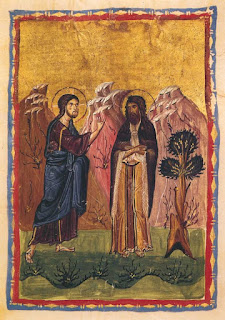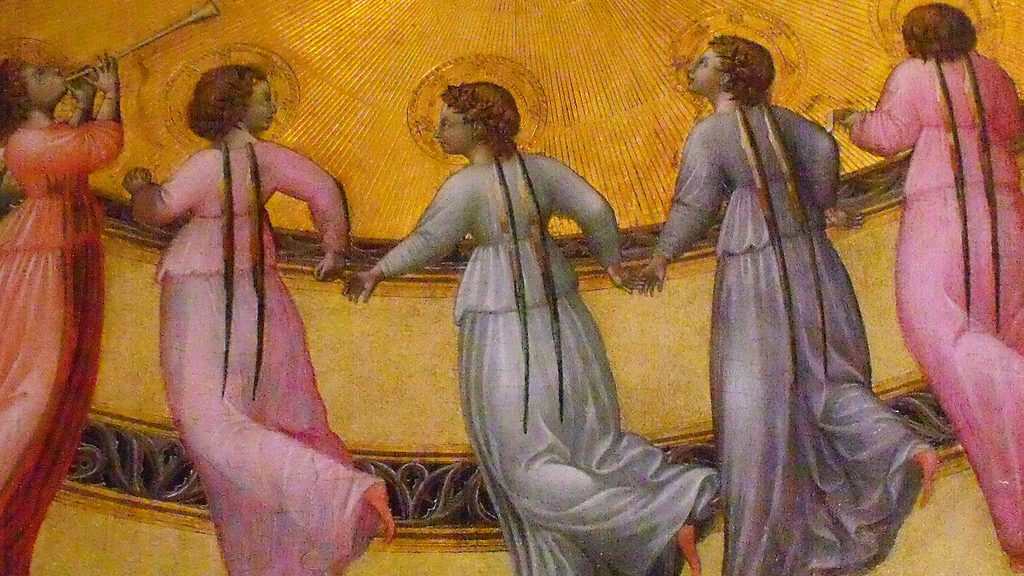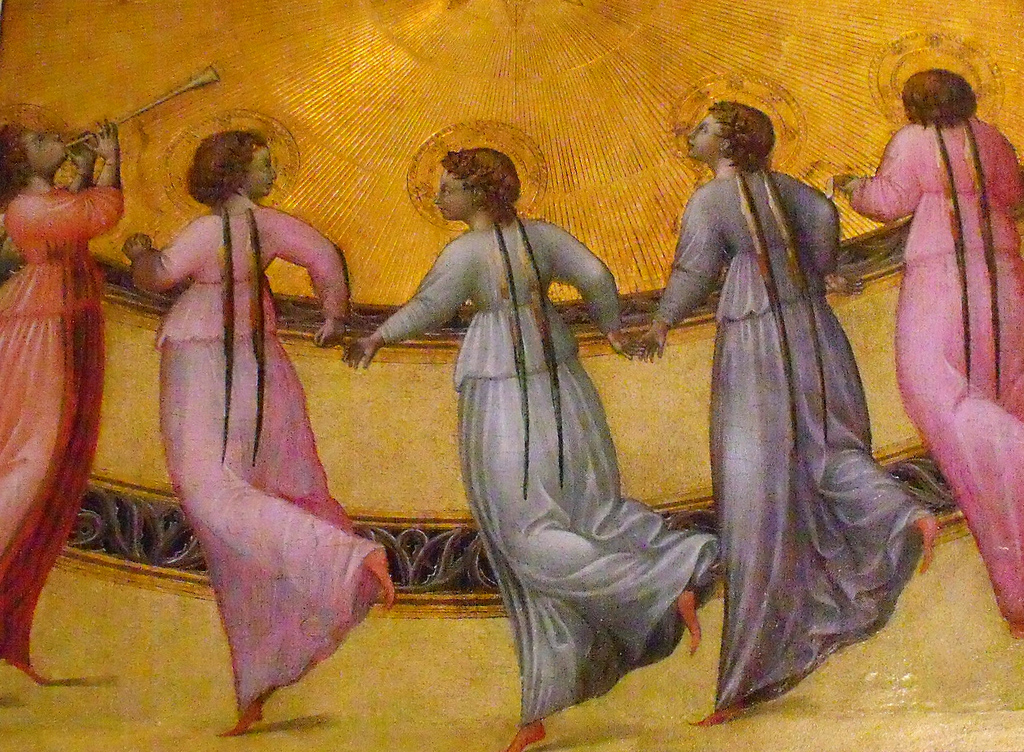One Mightier than I
THIRD SUNDAY OF ADVENT (C)
click here for readings
“One mightier than I is coming,” St. John the Baptist tells us in our gospel reading for this Sunday. “I am not worthy to loosen the thongs of His sandals” (Lk 3:16).
The third Sunday of Advent is Gaudete (Rejoice) Sunday, named for the first word from the entrance antiphon for the Mass: “Gaudete in Domino semper; Rejoice in the Lord always!” This is taken from the second reading, Philippians 4:4-7, where St. Paul goes on to say, “The Lord is near. Have no anxiety at all,” and speaks of the “peace of God that surpasses all understanding.” Peace and freedom from anxiety sound like cause for rejoicing. But what has this to do with St. John telling of someone mightier than himself?
It can be a little off-putting when we encounter someone better than we are. We are taught to excel. We want to be the best person on the team. We like to think of ourselves as the nicest friend in our group. We want to be the favorite son or daughter. So when we meet someone who is smarter, more athletic, kinder or more favored than we are, it bothers us. We find ourselves deposed from our thrones, knocked down a rung or two on our ladders.
I remember in elementary school taking pride in being the smartest in my class. I was a big fish in a small pond. In middle and high school the pond got bigger. There were lots of other smart kids, many smarter than I was. In college that pond became an ocean. Every day I would meet someone with more knowledge than I had on any given subject. It was a humbling experience.
Not only did I meet people with more knowledge than myself, I met people with more wisdom. They saw things more clearly than I did, and had a better understanding of how the world works. Even more importantly, I met — and continue to meet — people who are holier than I am. Being around holy people can make you profoundly uncomfortable. Your own faults stand out in sharp relief. It is no wonder that the saints were often persecuted, even by their fellow Christians.
Though it may at first be unsettling to encounter someone smarter, faster, stronger, wiser, or holier than we are, it can turn into a liberating experience. If it were not for those greater than ourselves, from whom would we learn? Who would inspire us? Who could teach us to better ourselves? Who could show us how to become something greater than we thought ourselves capable? This is the role that the saints play for us in our faith. They show us what the heights of holiness can look like, and demonstrate the path to get there. Above all else, they point the way to Christ.
For John, recognizing someone greater than he is a cause for rejoicing. This is because John understands clearly his place in the world, which is the key to true wisdom. By this time in his career he had gained a large number of followers and a reputation as a great prophet and a holy man. He even caught the attention and admiration of King Herod. Many believed John to be the Messiah foretold in the scriptures. But John knew he was not. That honor belongs to the one John would later point to and say, “Behold the Lamb of God who takes away the sins of the world” (Jn 1:28).
I saw a bumper sticker once that read, “There is only one God and the position is filled, so stop applying.” That’s a humorous rendering of the old maxim, there is one God and He is not me. This may seem obvious, but how many live today as if they are their own god? We admire the “self made man.” There is a running theme in our culture of forging your own destiny and living by your own rules. When it comes to morality, we reserve the right to decide for ourselves what is right and what is wrong. But there is a danger in being too autonomous. None of us live in a world of our own making. None of us is self-created. As much as we may pretend otherwise, none of us sits as judge over creation. Living as if we are our own god is living out of step with reality. That is the opposite of wisdom.
One cannot be truly free if one is trapped in a fantasy. To see the world clearly and understand one’s place in it is a liberating experience. The imprisoned man cannot escape his cell if he doesn’t realize he is imprisoned. The fallen cannot be saved if he doesn’t realize he needs a savior. And this is John’s cause for rejoicing. He knows the sinfulness of the world, but he also knows that the Savior of the World is about to step onto the scene. “One mightier than I is coming,” he says. And He is near.
This past week we celebrated two very important Marian feast days, the Solemnity of the Immaculate Conception on Dec. 8 and the Feast of Our Lady of Guadalupe on Dec. 12. More so than any other saint, Mary consistently points the way to her Son. A wise man once said that Mary shines brightly like the moon — not with her own light, but by reflecting the light of the Son. Mary’s role in our lives is expressed profoundly and simply in her words spoken at the wedding feast at Cana. Pointing to her Son, she says, “Do whatever He tells you to do” (Jn 2:5). This is Mary’s constant message to us.
John the Baptist is great like Mary is great. He is great in his humility, in his willingness to decrease, so that Christ may increase (Jn 3:30). Like Mary, he points the way to Jesus, the “one mightier than I.” He points to Jesus and tells us, You did not create yourself. He made you. You cannot judge yourself. Only He can judge you. You cannot save yourself. Only He can save you. Repent — and rejoice!
Rejoice. The Lord is near. Just as He was born in a humble manger at Bethlehem, He desires to be born into the humble heart still today. Mary points the way to Him. John shows us the path. Welcome Christ into your life, and welcome in the peace of God that surpasses all understanding. Rejoice. The Lord is near!



